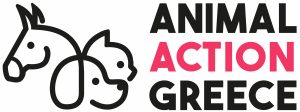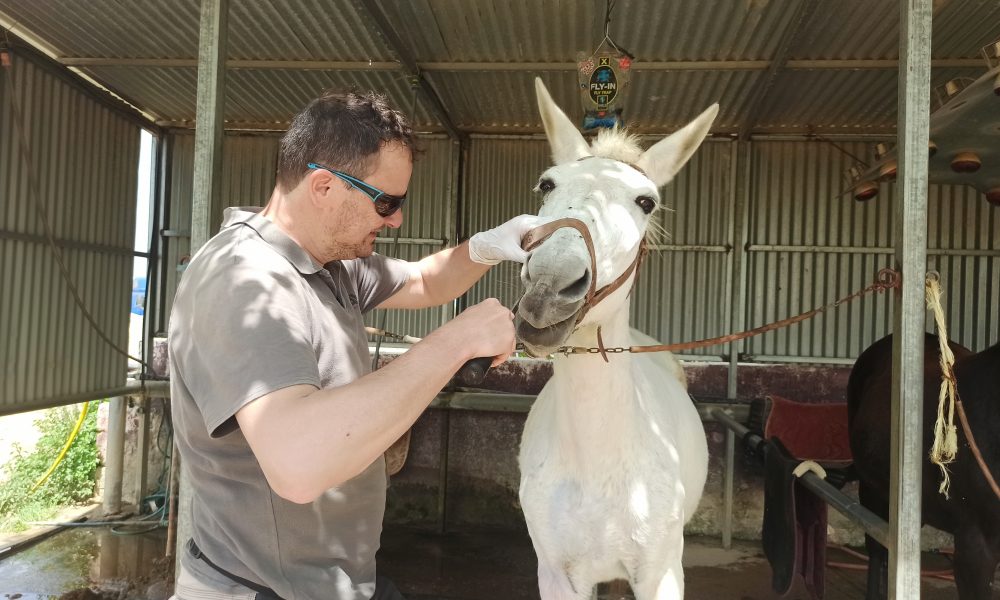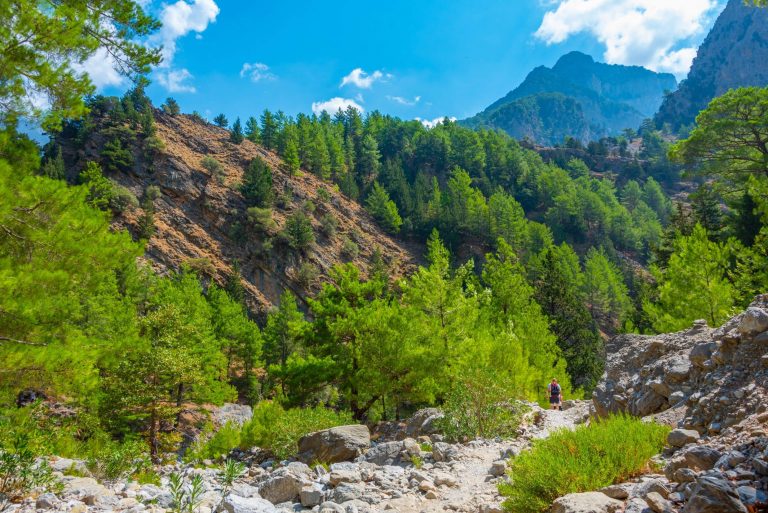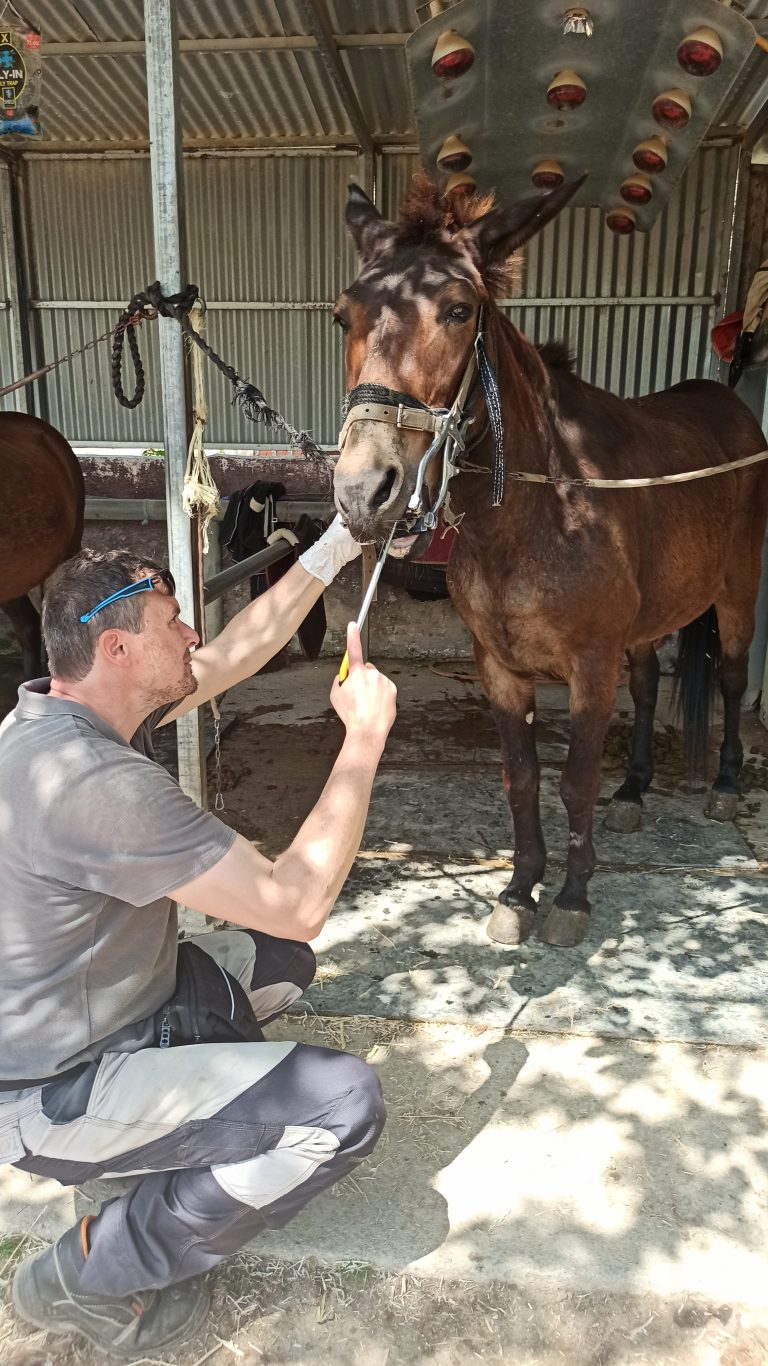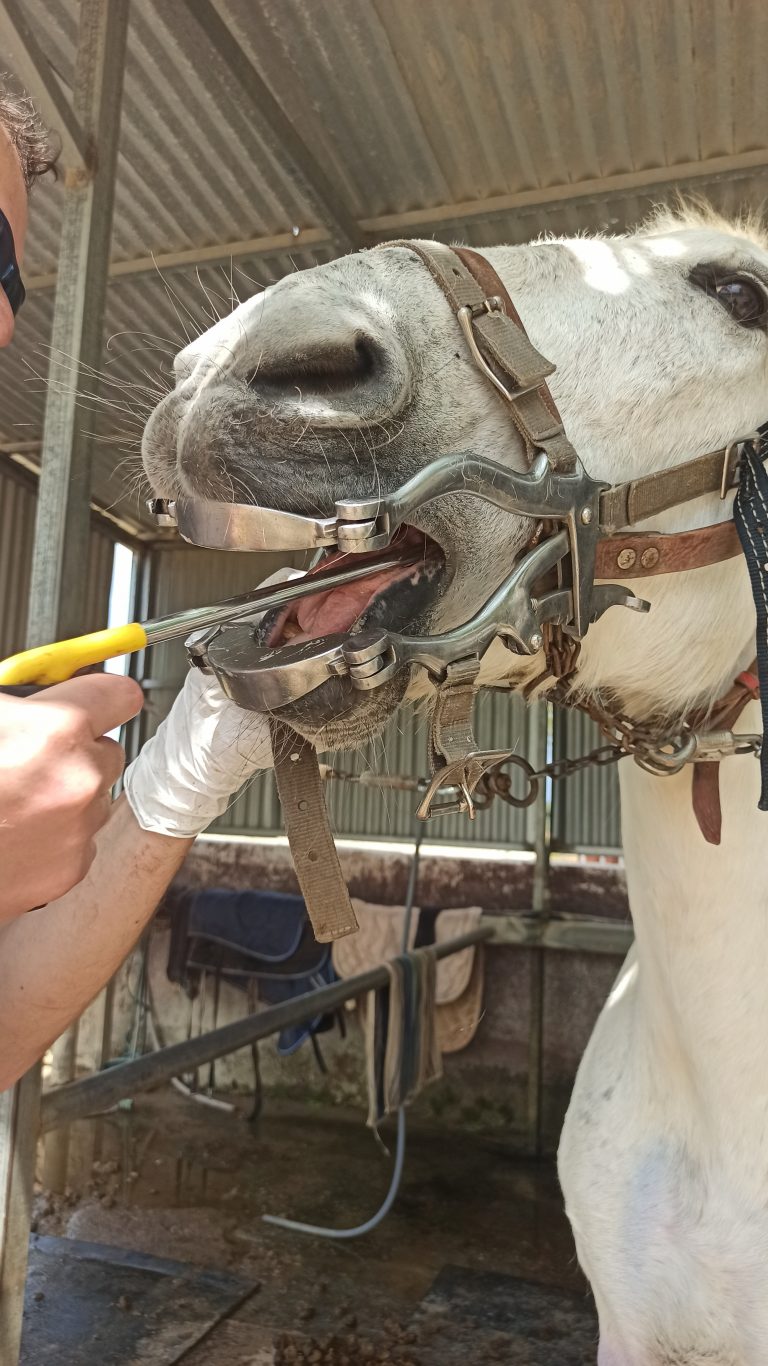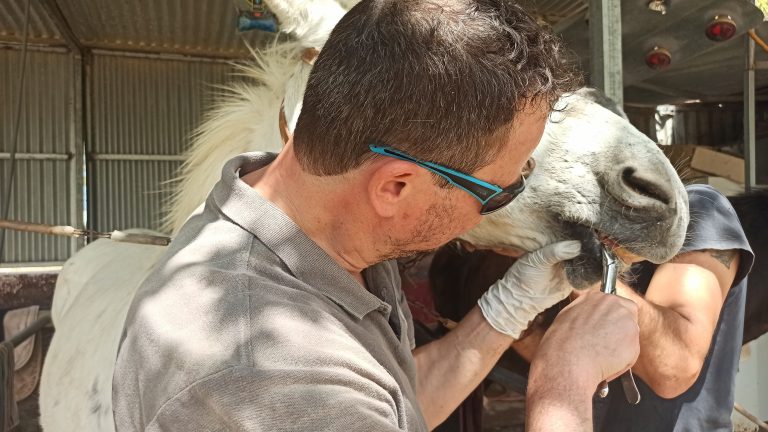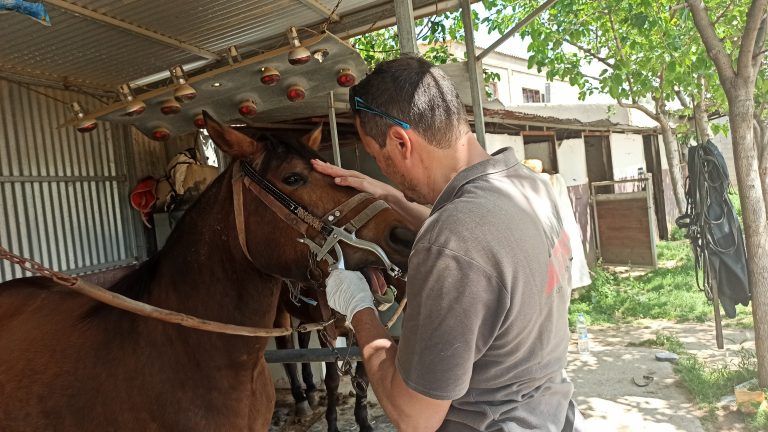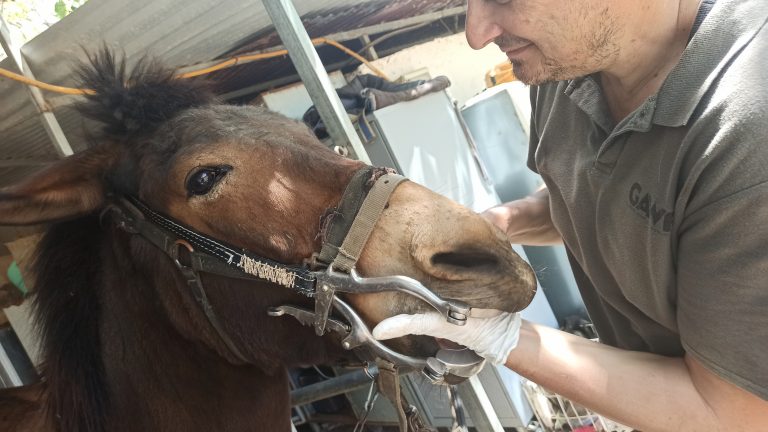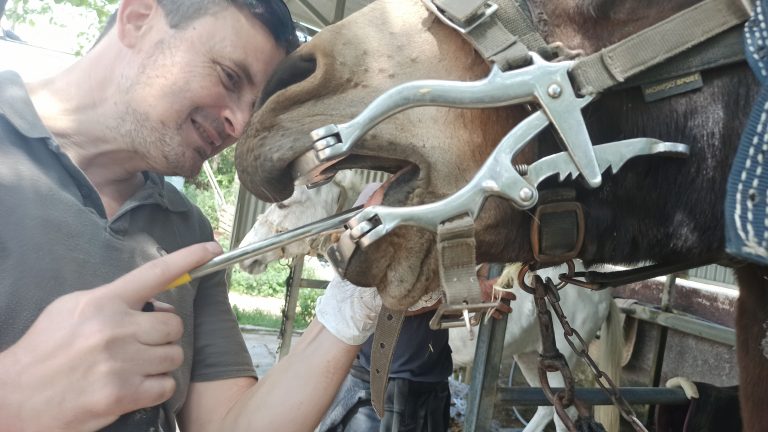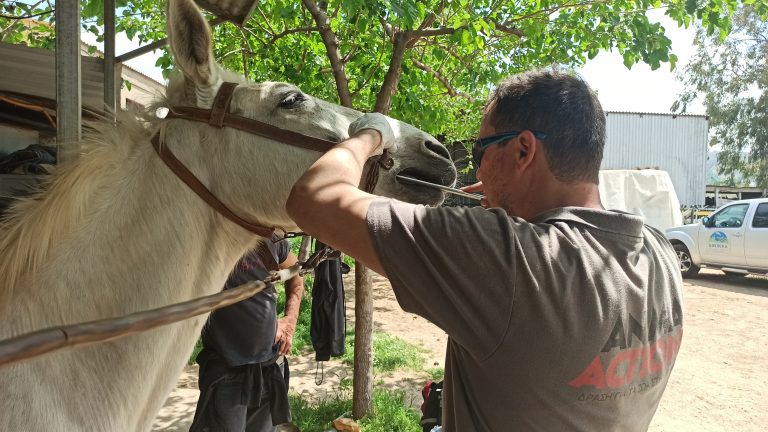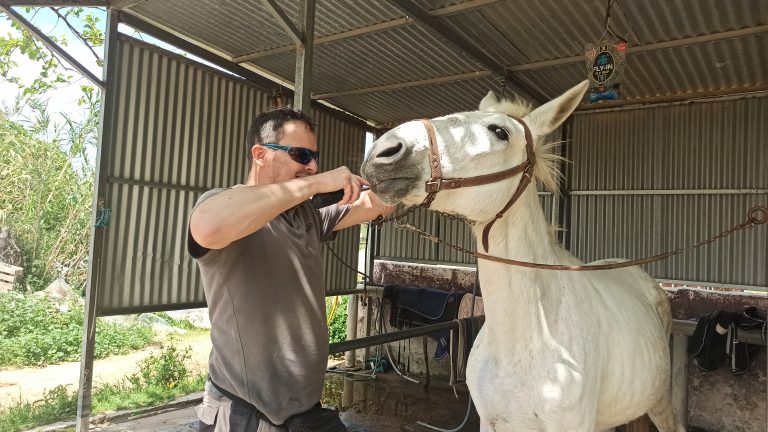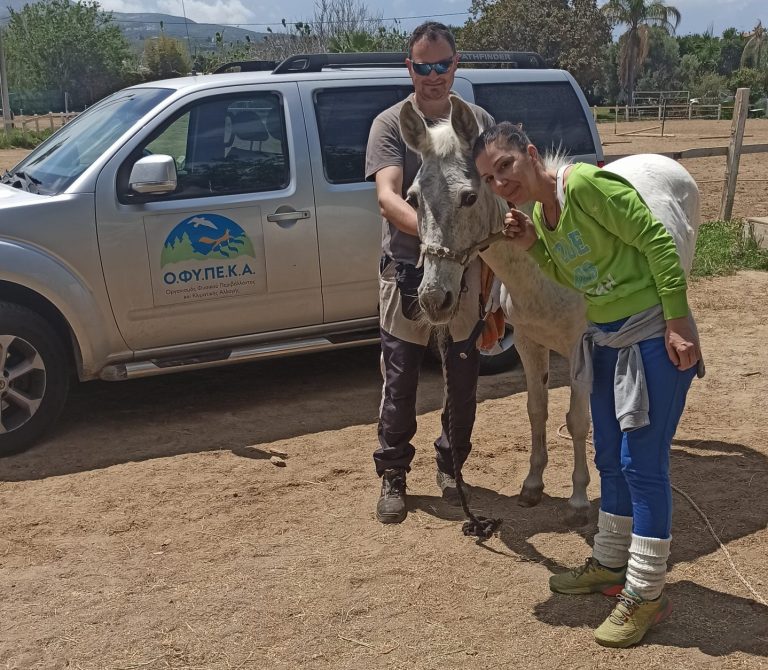A few decades ago, working mules, local donkeys and local breed Giorgalidiko horses were a common feature of everyday life in the villages of Crete. Life moved at a gentler pace; free of traffic noise, the air was cleaner, and streets were safer for pedestrians – a more harmonious rhythm of life. Although those times aren’t far behind us, they feel like a different world.
A window in this past opens every time someone visits the world famous Samaria Gorge. Declared a National Park of Greece in 1962, and later recognized as a UNESCO World Biosphere Reserve, it was created by a small river running between the White Mountains (Lefka Ori) and the movement of the earth’s tectonic plates. The gorge is 16 km long, starting at an altitude of 1,250 m at the northern entrance, and ending at the shores of the Libyan Sea in Agia Roumeli. The village of Samaria that lies just inside the gorge was finally abandoned by the last remaining inhabitants in 1962 to make way for the park. However, the personnel of the N.E.C.C.A. Management Unit and the Forestry Service live there much of the year along with the working equines of the Park.
On April 24th, 2025, during the quiet, off-season months, equine dental technician Alkis Gkeskos visited the winter facilities where the equines rest and recover. These animals work tirelessly during the tourist season, and the off-season is crucial for their rehabilitation and preventative care.
Dental care is vital for equines. It affects their ability to eat, digest properly, and maintain healthy body condition. Left untreated, dental issues can lead to weight loss, poor performance and serious health problems such as colic. Routine floating, calculus removal, and correcting abnormalities are key to a pain-free life for these hard-working animals.
Alkis examined seven mules and one horse, performing necessary dental treatments. Most animals presented routine issues such as sharp enamel points, but also minor hooks, ramps, and a wave mouth were encountered, while calculus was removed from incisors and canines. Treatment by our Equine Care Programme is offered annually. Although none of the findings were critical for life, all required treatment to ensure the animals’ comfort and continued good health.
One special elderly patient was also treated; despite missing his upper incisors, Makis is enjoying a peaceful retirement and a good quality of life.
Over time, even the initially nervous or sometimes reactive equines have grown accustomed to the dental treatment process and today they remain calm and cooperative during their dental check-ups.
Following the visit, Forest Protection Specialist Maria Axypolytou and the Management Unit of the Samaria National Park and the Protected Areas of Western Crete, expressed their appreciation for Animal Action Greece’s support in a heartfelt thank-you letter. They praised not only our equine dental technician’s professionalism and technical skills, but also his patience and respect shown toward the animals.
For over two decades, our Equine Care Programme has proudly advocated for responsible animal ownership—not just among individuals but also within organizations, public bodies, and businesses. The Management Unit comprehends the importance of preventive health and welfare for working equines. In a meaningful step forward, they have now officially included dental care in their annual preventive welfare program.
In the rugged terrain of the Samaria Gorge, mules and horses are the only means of transport. They carry supplies, materials for path maintenance, construction, and play a key role in keeping the park clean by transporting waste out of the area. They even act as “ambulances” in case of injured hikers.
These animals are not just part of the park—they are essential to it. Ensuring their wellbeing is both a responsibility and an honor. We remain committed to supporting the working equines of Samaria Gorge and the dedicated people who care for them.
